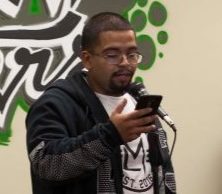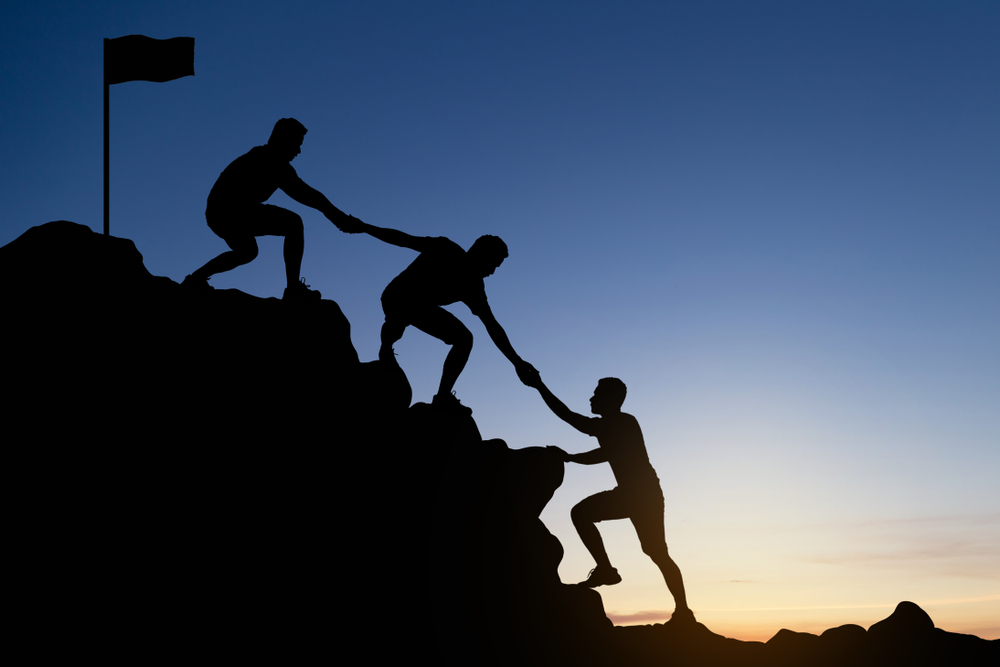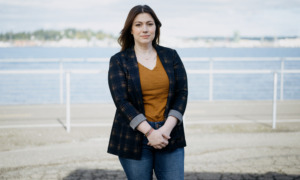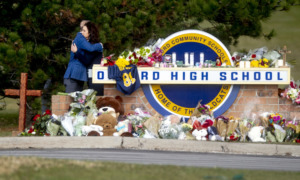I got released from the system about five years ago now, and my life has remained a consistent hustle. When I was first released, at 20 years of age, I was placed on parole for two years. My parole was tough, and so was entering back into society. I’ve struggled in a variety of different ways mentally, emotionally and spiritually, but I am now at a better place.
To be on parole basically means to have a correctional officer watching over you, making sure you’re abiding the laws. Parole comes with specials rules, like being subject to search and seizure at any time. Due to this regulation, I was constantly being stopped, pulled out of my car and handcuffed in front of my friends, family, classmates and even in front of my co-workers.
Coming back to an open society at 20 years old was both shocking and surreal. Being incarcerated for five years, I was accustomed to structure and my every day looking almost the same. Everything around me — my environment, diet and lifestyle —was institutionalized. I was so accustomed to being told what to do by correctional officers, when I finally touched down on freedom I wasn’t sure how to act. The only thing that was for sure after five years was that I was happy to see my family.
Hugging and embracing all of my family was the best feeling, and being able to spend time with them was very valuable to me. After being away for so long, some of the moments spent with my family and friends made me feel like it couldn’t be real, like it was a dream. From the good times to bad times, getting back to “the outs” felt unreal.
The same was true when in those early days of being released, I got into some old trouble with my old friends, which could have jeopardized my life and freedom. In those moments all I could think was how in the world I could get caught right back up again in such negative environments. Life in the outside world was much faster than when I was incarcerated. Being released as a young man, I saw things very differently. But I did understand that freedom is a rare bird — hard to catch and maintain — and that I was no longer a teenager, which meant that I had to get on my feet with a job and start going to school.
Trauma bottled up

Marcos Nuñez
At first, I did as I planned before being released, signing up for school and landing a job. While in those early days back I maintained my job as well as school, I also had an emotional imbalance and was naïve to the norms of society, the gestures, and so on. In turn, I kept a lot of feelings bottled up, never wanting to give away my real self: the young kid who felt outcast and lonely.
It was trauma bottled up. I didn’t want to deal with it — the hidden aggression, neglect and feelings of unacceptance. I never searched for the source of these things, continually trying to wash them over with a rough surface. It was then challenging to maintain the relationships with my friends and family because I was very prideful still and stubborn at the time. I hated admitting my mistakes, especially when people would point them out to me, but as time passed I learned to be more forgiving and also more conscious of my actions.
Growing up as someone who was quiet and then having to communicate my expressions as an adult was awkward and still is at times. No less difficult was consistently suffering from discrimination at the hands of San Bernardino’s police. The criminalization of my character continued after incarceration with random stops and seizures, petty traffic tickets and fines, and — more than anything — the inaccessibility of good jobs due to my record.
I found work taking hard jobs like landscaping, roofing, construction, warehouse labor and car washing — jobs that most Americans generally look down on. This meant working alongside many undocumented people. It was tough in the beginning, but my family and friends held me down, showing me love even in spite of the issues we’d have as I readjusted to the customs of work and school.
This, I realized, was the definition of my community, the community that uplifted me and still pulls me up today. They stuck it out, showed me love and never turned their backs on me, even when we weren’t on the best of terms or mad at each other. Even at my worst, my community helped me get on my feet every time I fell down. They helped me realize what real family and friends look like, helping each other when we can.
Faith and community
I can also address that believing in God and prayer has helped me in my moments with rock bottom. I don’t always pray as much as I should, nor do I go to church a lot, but some good meditation and prayer has given me strength. I’ve never called myself a Christian or happy churchgoer, but I do pray at my worst moments and faith does lead me up. As I sit and write about it now, it amazes me how much I’ve been through since I’ve been out — how much I’ve learned.
I completed my parole program in April 2015. That same year, I decided to major in accounting at my local community college. To this day, I am completing the necessary coursework to get a certification in accounting. Since my release I’ve also fallen in and out of love, was almost killed, and was put down by people who didn’t care to see me succeed. Ultimately, though, I learned through each of these events as well as from my mistakes — some big and some small. Through thick and thin I stayed strong, even when it was just me, because I knew that it was also my community.
Life
Living in way I thought was right
Took a piece my life
Now I’m here, I survived
Take a look inside so u can be surprised
Witness a way of thinking change
Next no more rain
Keep your head up
No more downfalls because it’s only moving up, keep living
As long as you’re breathing
Show love to receive it
My fire is my strength, my heart
To do things and become someone because only you know who you are
Pen and paper my life becomes a work of art
Only I can paint it
Stained with permanent truth so you can’t erase it
I keep my truth silent, making noise
Only when necessary,
No Longer an Unspoken Voice
Marcos Nuñez, 25, is a college student and long-time member of the InsideOUT Writers. When he’s not busy with the pen and paper, he enjoys listening to his favorite jams and hanging back with friends and family in San Bernardino, California.
































